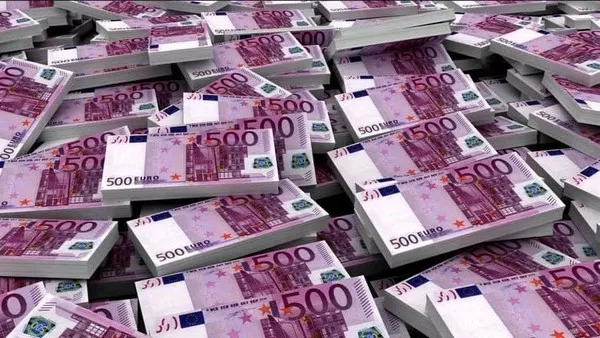The exchange rate between the US dollar and the euro is closely watched by businesses, investors, and individuals alike. Fluctuations in this rate can impact trade, investment, travel costs, and even global economic stability. As of May 2023, the exchange rate stands at approximately 1 USD to 0.85 EUR. But what factors are likely to influence whether the dollar will go up or down against the euro in the coming months?
Impact of Interest Rates
One key factor that can influence currency exchange rates is interest rates. Higher interest rates tend to attract foreign investments, which increases the demand for a country’s currency and can lead to an appreciation in its value. The Federal Reserve (Fed) has been gradually increasing interest rates since 2015, with the aim of keeping inflation in check. This has helped to strengthen the dollar in recent years, as investors seek higher returns on their investments. However, the Fed has also indicated that it may pause or even lower interest rates if economic growth slows down or inflation remains below its target. If this were to happen, the dollar could weaken against the euro.
Macroeconomic Factors
Other macroeconomic factors can also affect the dollar-euro exchange rate. For example, changes in GDP growth rates, employment figures, and inflation levels can all impact the strength of a currency. In the US, GDP growth has been relatively strong in recent years, averaging around 2% in 2019 and 2020. However, there are concerns that growth may slow down in the coming years due to factors such as rising debt levels and trade tensions with China. Meanwhile, the eurozone has struggled with low growth rates and high debt levels in recent years, although there are signs that the economy may be starting to recover.
Political Factors
Political events can also have a significant impact on currency exchange rates. For example, uncertainty surrounding Brexit negotiations led to a decline in the value of the pound against both the dollar and the euro. Similarly, concerns over US-China trade relations have weighed on the dollar in recent months. The upcoming 2024 US presidential election could also have an impact on the dollar-euro exchange rate if investors become uncertain about the future direction of US economic policy.
Central Bank Policies
The policies of central banks can also influence currency exchange rates. For example, the European Central Bank (ECB) has kept interest rates at record lows in recent years in an effort to stimulate economic growth. This has helped to weaken the euro compared to other currencies, including the dollar. However, the ECB has also indicated that it may begin to raise interest rates if economic conditions improve. If this were to happen, the euro could strengthen against the dollar.
Trade Relations
Finally, trade relations between the US and the eurozone can also impact the dollar-euro exchange rate. In recent years, there have been tensions between the two regions, with the US imposing tariffs on imported goods from Europe and the EU responding with its own tariffs. These tensions have led to increased uncertainty and volatility in financial markets, which can impact exchange rates. If a resolution to these trade tensions is found, this could help to stabilize the dollar-euro exchange rate.
Conclusion
In conclusion, the dollar-euro exchange rate is influenced by a wide range of factors, including interest rates, macroeconomic indicators, political events, central bank policies, and trade relations. While it is difficult to predict exactly how these factors will play out in the coming months, it is clear that they will continue to shape the strength of the dollar and the euro. As such, individuals and businesses that engage in cross-border transactions should stay informed about these factors and take steps to manage their currency risk accordingly.
Related topics:


